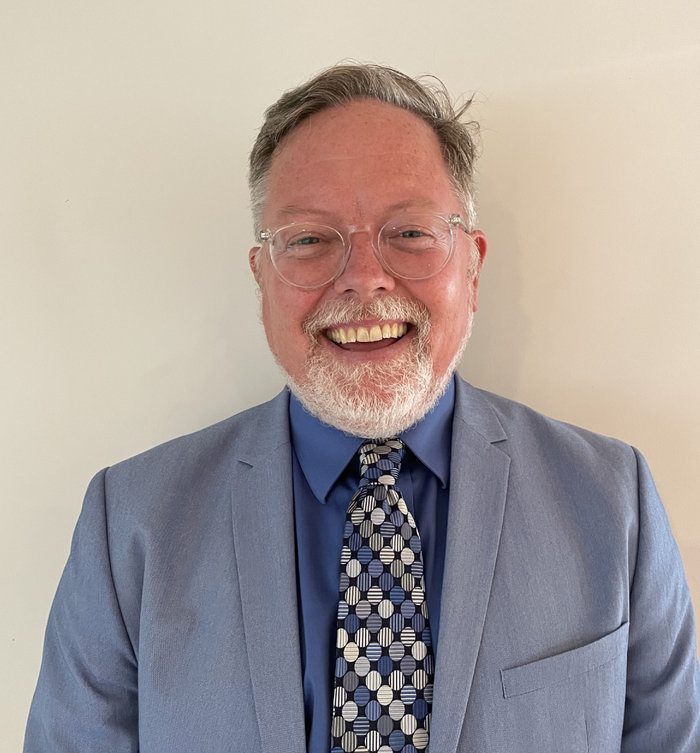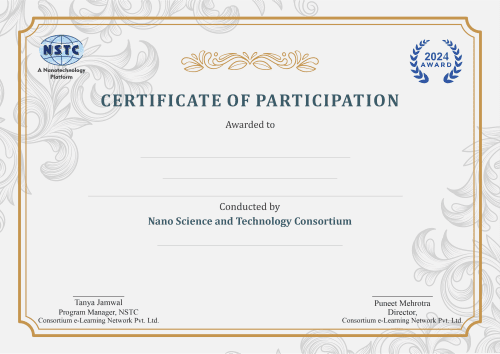Virtual Workshop
Improving Implants: The Nano Effect
“Nano Wonders in Healthcare: Redefining Implant Excellence with The Nano Effect.”
“Nano Wonders in Healthcare: Redefining Implant Excellence with The Nano Effect.”
- Mode : Mode(Online)
- Type: Mentor Based
- Level: Moderate
- Duration: 1.5 Hours/day
- Timings: Indian Standard Timings 07:00 PM
Mode
Type
Level
Duration
Skills you will gain:
About Workshop
Improving Implants: The Nano Effect workshop, where innovation meets precision in the realm of advanced medical enhancements. Dive into the cutting-edge world of nanotechnology, exploring how tiny wonders can make a colossal impact on improving implants. This immersive workshop is a unique opportunity to engage with experts, discover ground-breaking research, and envision the future of medical interventions. Embrace the transformative potential of nanobots and delve into the forefront of enhancing human capabilities. Don’t miss your chance to be a part of the workshop that is shaping the future of healthcare – where the tiniest particles lead to the most significant advancements.
Aim: The aim of the workshop, “The Nano Effect,” is to equip participants with a profound understanding of nanotechnology and its application to medical implants. Over the course of four days, the workshop aims to delve into the definition and unique properties of nanomaterials, explore their specific impacts on implant performance, and provide participants with the knowledge and tools to design implants that exhibit enhanced interactions with biological systems. By emphasizing clinical evidence and future directions, the workshop aims to bridge the gap between theoretical concepts and practical applications, fostering a comprehensive understanding of how nanotechnology can revolutionize the field of implantable medical devices.
Workshop Objectives:
- Understand the Fundamentals of Nanotechnology and Nanomaterials: Define and explain the core concepts of nanotechnology and nanomaterials, providing participants with a foundational understanding of their characteristics and applications.
- Explore the Unique Features of Nanomaterials: Investigate the distinctive properties that make nanomaterials special, focusing on their behavior at the nanoscale and how these properties differ from bulk materials.
- Examine Altered Properties of Nanomaterials and Their Underlying Mechanisms: Delve into the reasons behind the altered properties of nanomaterials, emphasizing the mechanisms that drive these changes and their implications in various applications.
- Learn Techniques to Control Surface Energy Using Nanomaterials: Provide participants with practical knowledge on how to manipulate surface energy through nanomaterials, enabling them to understand and control interactions with biological systems.
- Identify Three Design Criteria for Improved Implant Performance: Define and elaborate on three essential design criteria for incorporating nanomaterials to enhance the performance of medical implants, considering both theoretical principles and practical applications.
- Gain Insights into Predictive Equations for Nanomaterial-Enhanced Implant Performance: Familiarize participants with predictive equations and modelling techniques that guide the selection and application of nanomaterials, facilitating informed decision-making in implant design.
- Comprehend Water Interactions with Nanomaterials: Explore the interactions between nanomaterials and water, understanding how these interactions influence the performance and biocompatibility of medical implants.
- Investigate Protein Interactions with Nanomaterials: Examine the interactions between nanomaterials and proteins, elucidating the implications for implant biocompatibility and tissue responses.
- Understand Cellular Interactions with Nanomaterials: Explore the ways in which cells interact with nanomaterials, emphasizing the impact on tissue integration around implants and overall biocompatibility.
- Evaluate Inflammatory System Interactions and Blood Coagulation with Nanomaterials: Examine the response of the inflammatory system to nanomaterials and their influence on blood coagulation, providing insights into the safety and compatibility of nanomaterial-enhanced implants.
What you will learn?
Day 1: The Nano Effect
- Definition of nanotechnology and nanomaterials
- What is so special about nanomaterials ?
- Altered properties of nanomaterials and why
- How to control surface energy through nanomaterials
- 3 design criteria of using nanomaterials to improve implant performance
- Predictive equations to use nanomaterials to improve implant performance
Day 2: Controlling Short and Long-term Interactions of Implants with the Body: The Nano Effect
- Water interactions with nanomaterials
- Protein interactions with nanomaterials
- Cell interactions with nanomaterials
- Inflammatory system interactions with nanomaterials
- Blood coagulation with nanomaterials
Day 3: Improving Hard Tissue Implant Applications (Clinical Evidence): The Nano Effect
- Orthopaedic hard tissue (Bone)
- Anti-bacterial
- Anti-viral
- Anti-inflammatory
Day 4: Improving Soft Tissue Implant Applications (Clinical Evidence): The Nano Effect
- Cardiovascular
- Vascular
- Orthopaedic soft tissue (Ligaments, Cartilage, Tendons, Muscle)
- Neurological
- Skin
- Bladder and Gastrointestinal
- Future directions of nanotechnology (implantable sensors, artificial intelligence, digital health, pico-medicine, etc.)
Mentor Profile

Thomas J. Webster’s (H index: 122; Google Scholar) degrees are in chemical engineering from the University of Pittsburgh (B.S., 1995; USA) and in biomedical engineering from RPI (Ph.D., 2000; USA). He has served as a professor at Purdue (2000-2005), Brown (2005-2012), and Northeastern (2012-2021; serving as Chemical Engineering Department Chair from 2012 – 2019) Universities and has formed over a dozen companies who have numerous FDA approved medical products currently improving human health in over 20,000 patients. His technology is also being used in commercial products to improve sustainability and renewable energy. He is currently helping those companies and serves as a professor at Brown University, Saveetha University, Vellore Institute of Technology, UFPI, and others. Dr. Webster has numerous awards including: 2020, World Top 2% Scientist by Citations (PLOS); 2020, SCOPUS Highly Cited Research (Top 1% Materials Science and Mixed Fields); 2021, Clarivate Top 0.1% Most Influential Researchers (Pharmacology and Toxicology); 2022, Best Materials Science Scientist by Citations (Research.com); and is a fellow of over 8 societies. Prof. Webster and his team have over 1,350 publications with over 55,000 citations. He is a recent Nobel Prize in Chemistry nominee.
Fee Plan
Student
INR 1399/- OR USD 50
Ph.D. Scholar / Researcher
INR 1699/- OR USD 55
Academician / Faculty
INR 2199/- OR USD 60
Industry Professional
INR 2699/- OR USD 85
Important Dates
Registration Ends
08 APR 2024
Indian Standard Timing 06:00 PM
Workshop Dates
08 Apr 2024 to 11 Apr 2024
Indian Standard Timing 07:00 PM
Get an e-Certificate of Participation!

Intended for: Graduates, Post Graduates, Research Scholars, Academicians, Industry Professionals of science, technology, and healthcare, Biomedical Engineering, Materials Science, Nanotechnology, Medicine, Biochemistry, medical technology, pharmaceuticals,
Career Supporting Skills
Nanotechnology Proficiency
Biosensors Development
Biocompatible Materials Selection
Regenerative Medicine Techniques
3D Printing for Implants
Workshop Outcomes
- Foundational Nanotechnology Knowledge: Participants will acquire a comprehensive understanding of nanotechnology and nanomaterials, laying the groundwork for their applications in medical implants.
- Unique Characteristics of Nanomaterials: Exploring the special properties of nanomaterials, participants will grasp the distinct features that make them suitable for enhancing implant performance.
- Practical Application of Nanomaterials: The workshop will provide practical insights into controlling surface energy through nanomaterials, allowing participants to apply this knowledge in implant design and development.
- Understanding Interactions with the Body: Participants will explore short and long-term interactions of implants with water, proteins, cells, the inflammatory system, and blood coagulation, enhancing their comprehension of implant biocompatibility.
- Clinical Evidence in Hard and Soft Tissue Applications: The workshop will provide clinical evidence supporting the use of nanomaterials in orthopaedic hard tissue applications, as well as various soft tissue applications, showcasing their efficacy and potential.
- Exploration of Anti-bacterial, Anti-viral, and Anti-inflammatory Properties: Participants will gain insights into how nanomaterials exhibit anti-bacterial, anti-viral, and anti-inflammatory properties, understanding their potential in enhancing implant safety.
- Future Directions in Nanotechnology: The workshop will conclude with an exploration of future directions in nanotechnology, including implantable sensors, artificial intelligence, digital health, and picomedicine, providing participants with a forward-looking perspective on the evolving landscape of medical implants.
